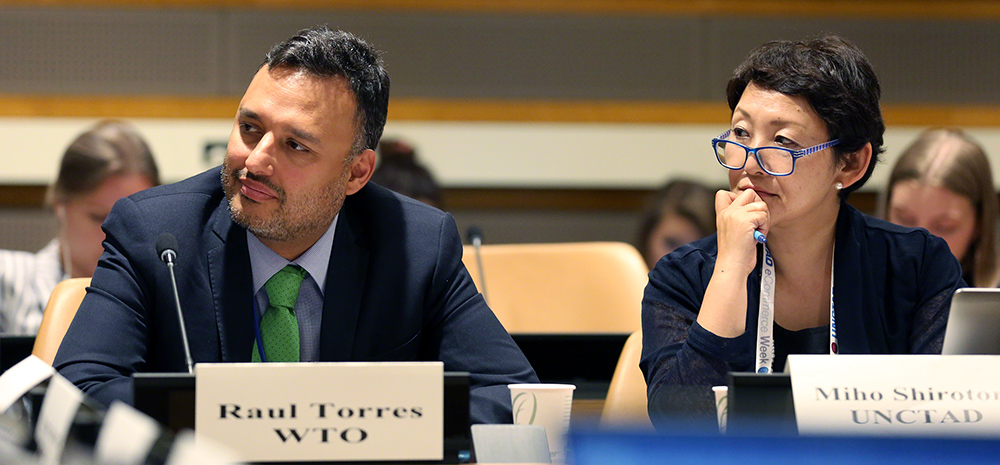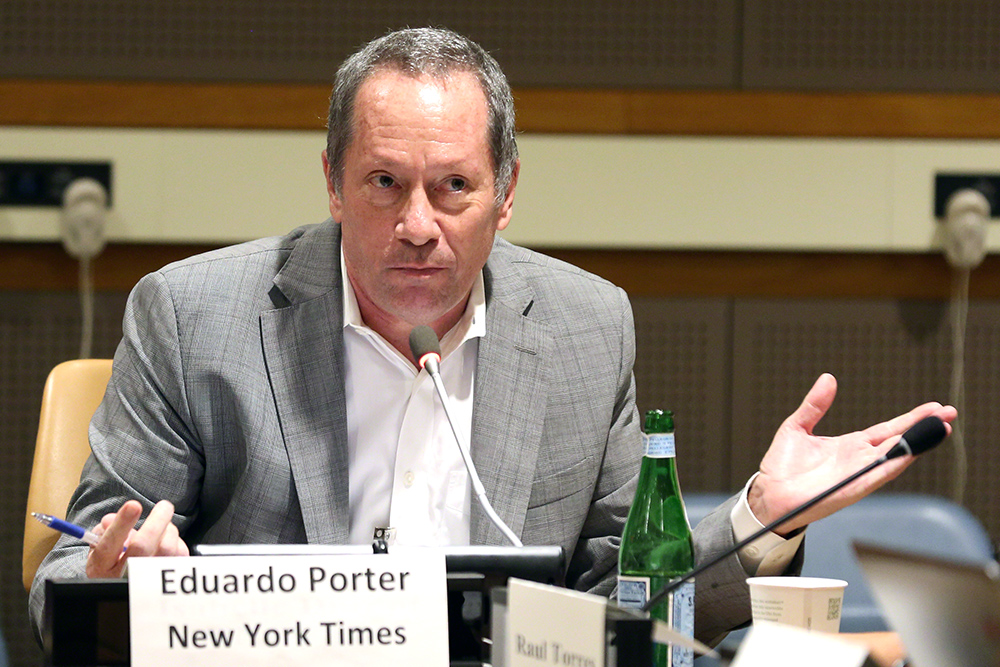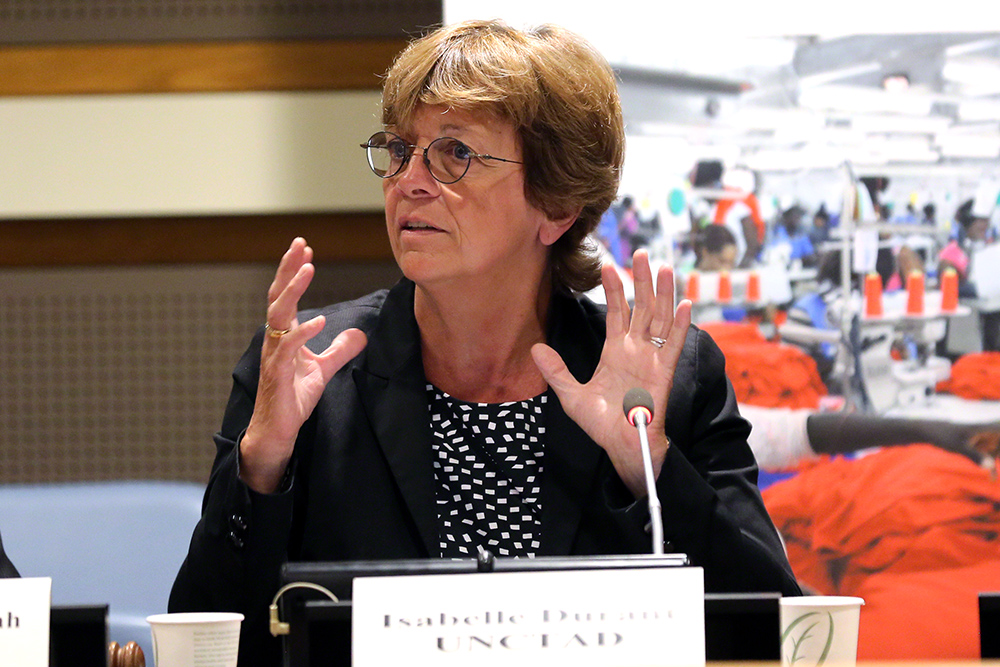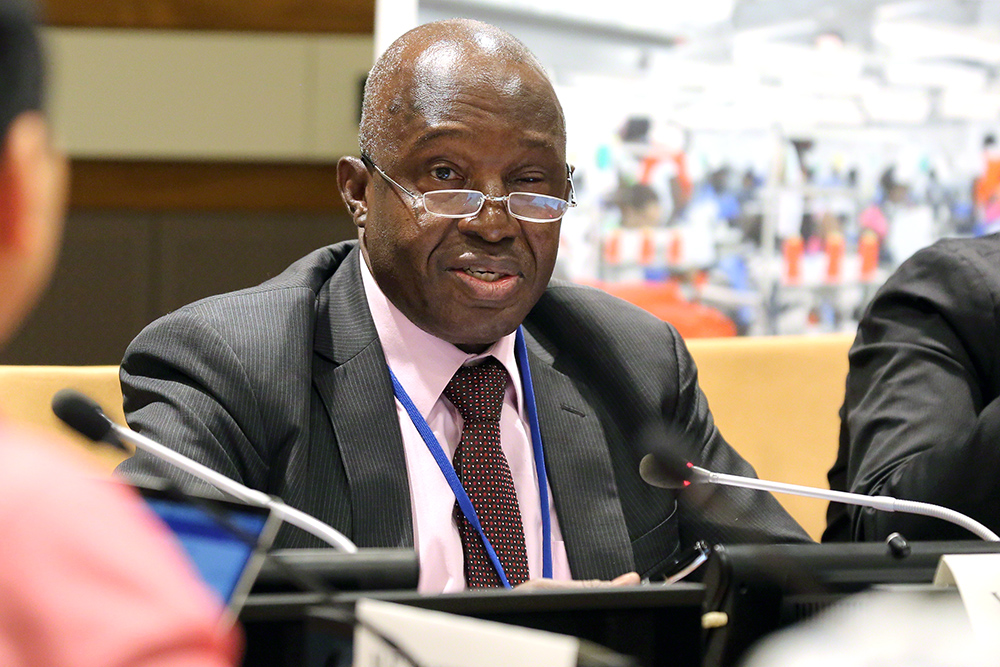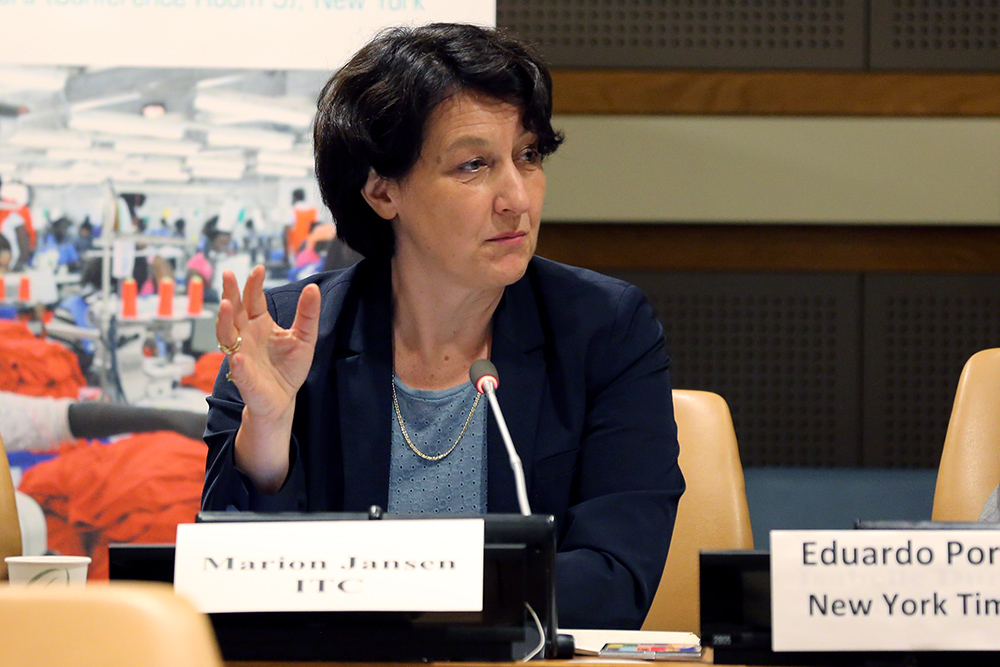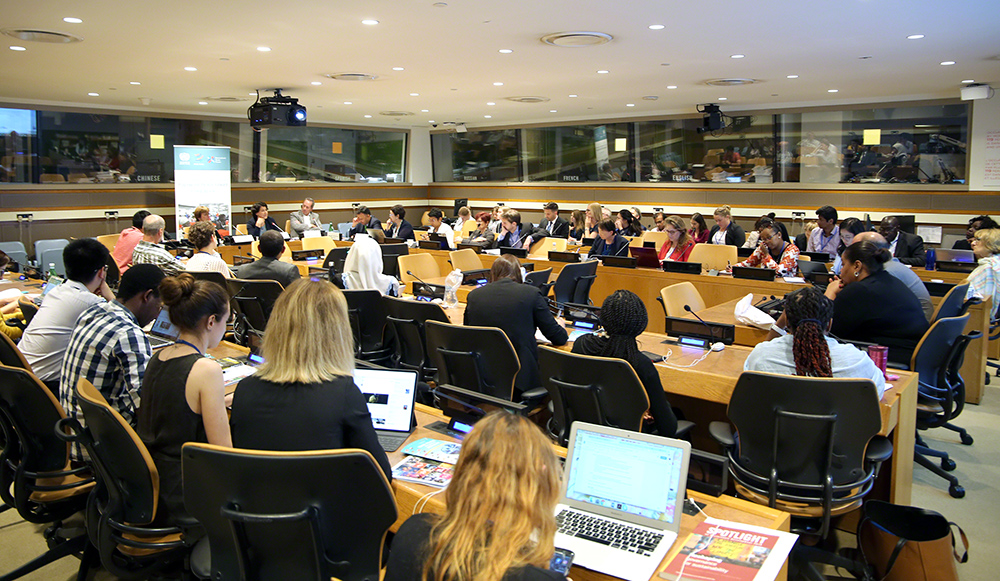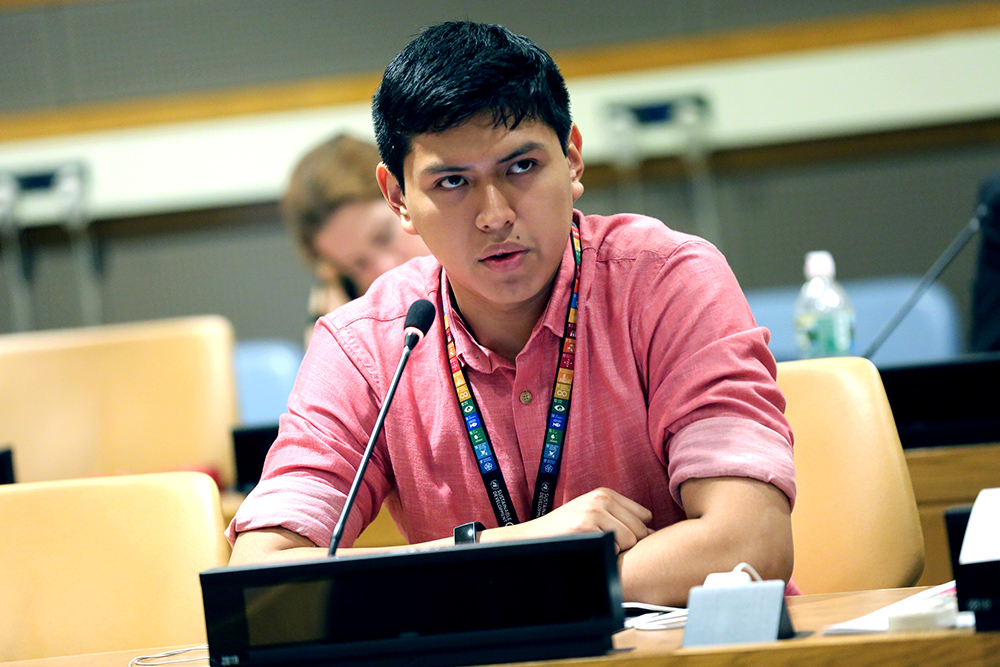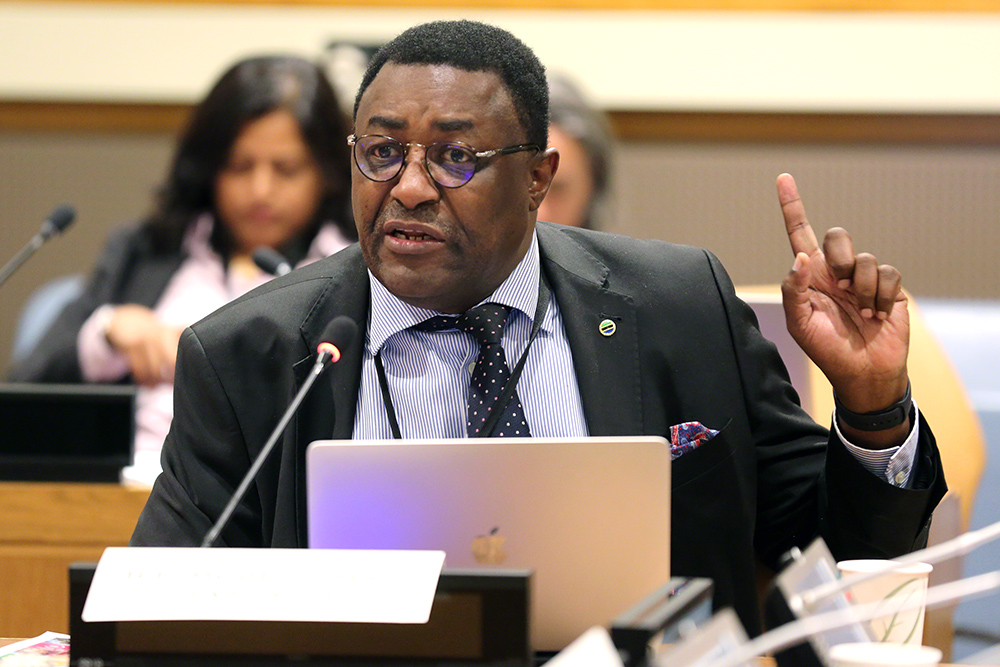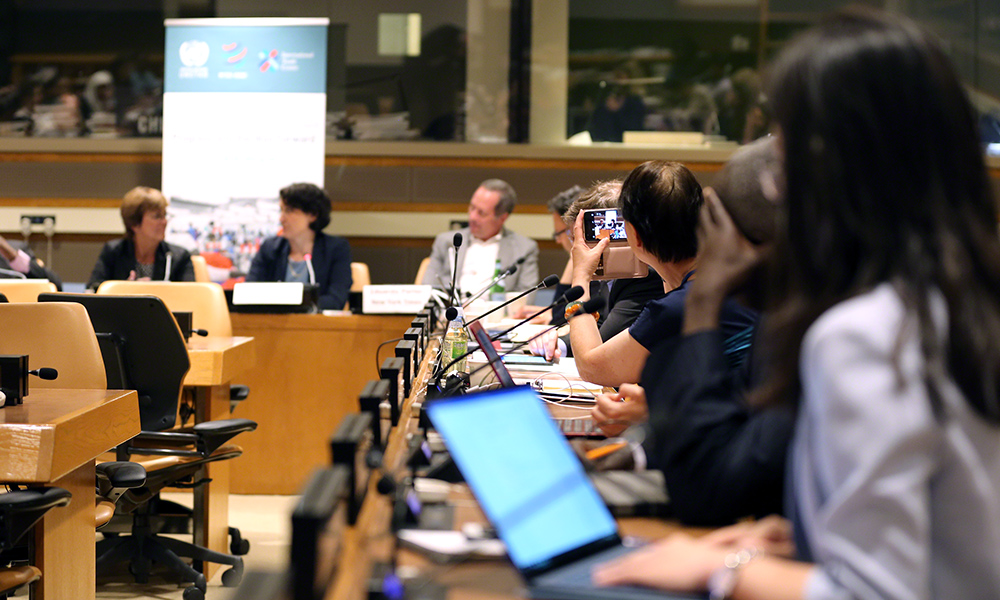Summary
Events Covered on Wednesday, 17 July 2019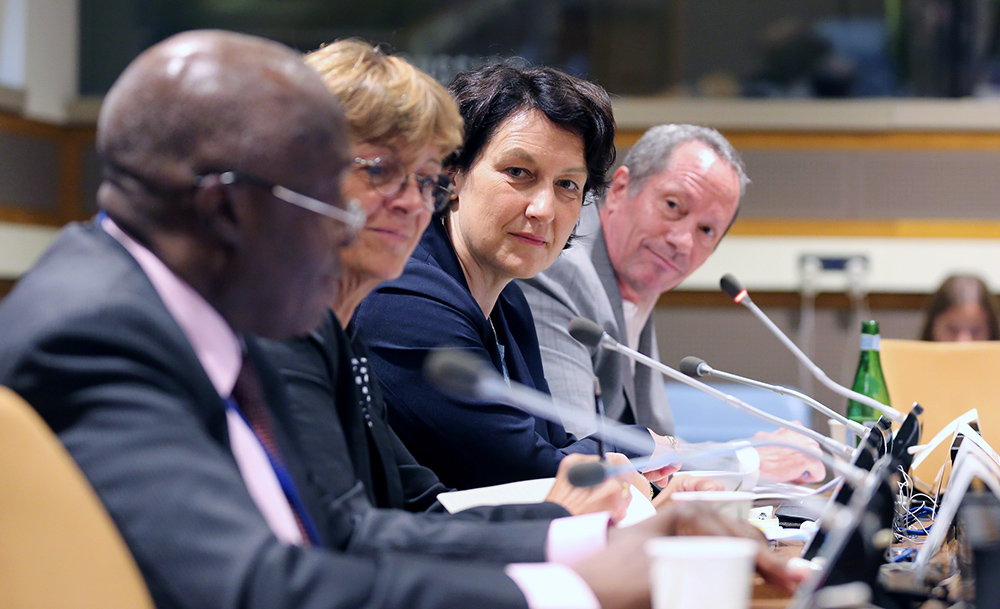
 The following events were covered by IISD Reporting Services on Wednesday, 17 July 2019:
The following events were covered by IISD Reporting Services on Wednesday, 17 July 2019:
Photos by IISD/ENB | Mike Muzurakis
For photo reprint permissions, please follow instructions at our Attribution Regulations for Meeting Photo Usage Page
Key Conditions for the Completion of Fundamental Education in Cameroon: Reforms to be Undertaken
Presented by the Permanent Mission of Cameroon to the UN and UN-Cameroon
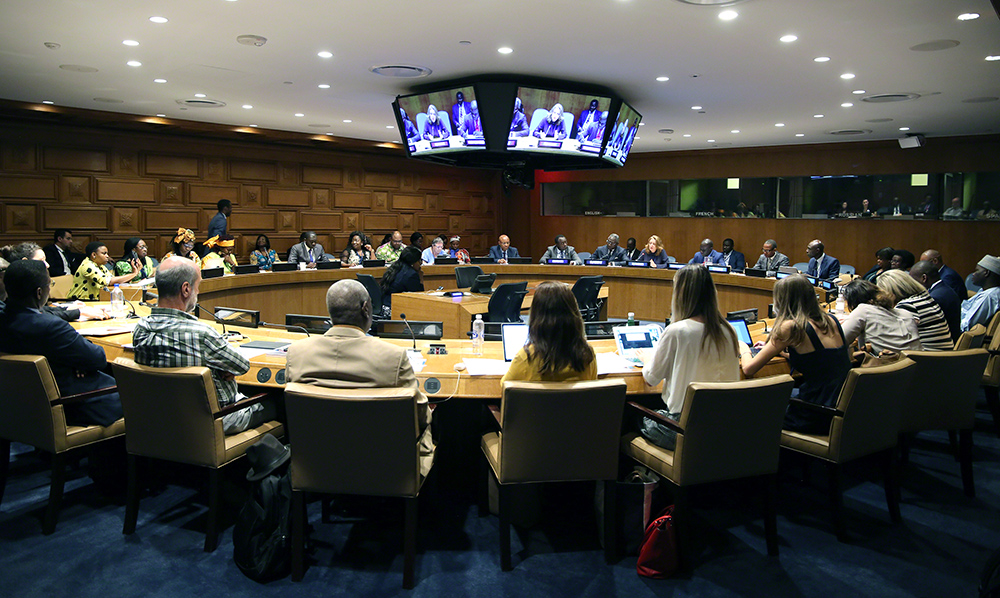
Key messages:
- Significant progress has been made in Cameroon with regard to the expansion of access and reduction of gender disparities in schools;
- A new education sector strategy, aligned with Sustainable Development Goal (SDG) 4, is under elaboration. However, low retention of students and professors stand as impediments to the achievement of the universal education principle; and
- Education standards are affected by: qualitative and quantitative inadequacy of the required infrastructure; and insufficiency of teachers, notably to ensure inclusive education for children with disabilities.
The event was convened to debate and gather suggestions for the completion of fundamental education reforms in Cameroon, fulfilling its commitment to the Agenda 2030 and the SDGs.
Event Summary:
Jean Tchoffo, Ministry of the Economy, Planning and Regional Development of Cameroon, moderated the panel.
Alamine Ousmane Mey, Minister of Economy, Planning and Regional Development of Cameroon, shared the experiences of his country in increasing universal access to primary education. He highlighted key aspects of education reforms, notably promoting free tuition for primary education and free distribution of revised textbooks. As main challenges, he underscored, in particular, the low retention rate and overall insufficiency of teachers. Underlining that education “is not just a matter for governments,” he urged for more partnerships and support from all stakeholders to promote universal education.
Allegra Maria Del Pilar Baiocchi, UN Development and Humanitarian Coordinator in Cameroon, noted quality and inclusive education as a foundation for sustainable development. She explained how the UN has been supporting Cameroon by financing and stimulating: the establishment of institutional and legal frameworks; the adoption of evidence-based approach; the strengthening of curriculum, based on skills which match market needs; and the increase in the number and quality of teachers. She lamented security threats due to terrorism, noting that “education is under attack” in some areas in Cameroon, calling for more financial support to overcome these challenges.
Joseph Oye, Sightsavers, spoke on inclusive education, highlighting actions to improve education for displaced children, refugees, and children with disabilities. He observed that civil society works to ensure equality and accessible education, noting that, in Cameroon, many organizations are working on SDG 4 (education). He stressed that his organization safeguards children’s education but that data gaps and the lack of teacher’s specialization, for example on children with disabilities, remain bottlenecks. He concluded that education is key for economic empowerment and more tolerant societies.
During the ensuing discussion, panelists underlined that education has been increasingly perceived as an urgent matter and emphasized that data disaggregation is key. Baiocchi underscored education as a top priority for donors, on par with food access and emergencies, noting the creation of the global fund “Education cannot wait.”
Mey closed the event recalling that policy development, implementation, and monitoring are critical steps toward education for all, emphasizing that data is essential for policy elaboration and that funding, as well as human resources, are crucial for policy implementation. Drawing attention to the strong integrative aspect of all SDGs, he stressed the importance of participatory approach to foster education, stating that education is a human right.
Event conclusions:
Overall, the event focused on access and quality of education, as well as on equity, in terms of inclusiveness. Many participants congratulated Cameroon for its proactive efforts to support education. Questions included doubts about details on gender-disaggregated data, notably related to female disabled students, and methods to enhance the implementation of the SDGs in an integrated manner.
Why Does it Matter:
The HLPF 2019 offers a chance to evaluate how countries are responding to the challenges of the SDGs’ implementation. Access to education was highlighted as a major challenge in Cameroon. The event demonstrated that reforms at multiple levels are still needed, notably to sensitize donors, governments and civil society about the urgency of investing in education. Panelists, shared relevant experiences, including on inclusive education, showcasing how Cameroon is promoting people empowerment and the reduction of inequities. Leaving no one behind; addressing trade-offs through policy integration; and pursuing global partnerships, as means of implementation, are key elements determining the success of the SDGs.
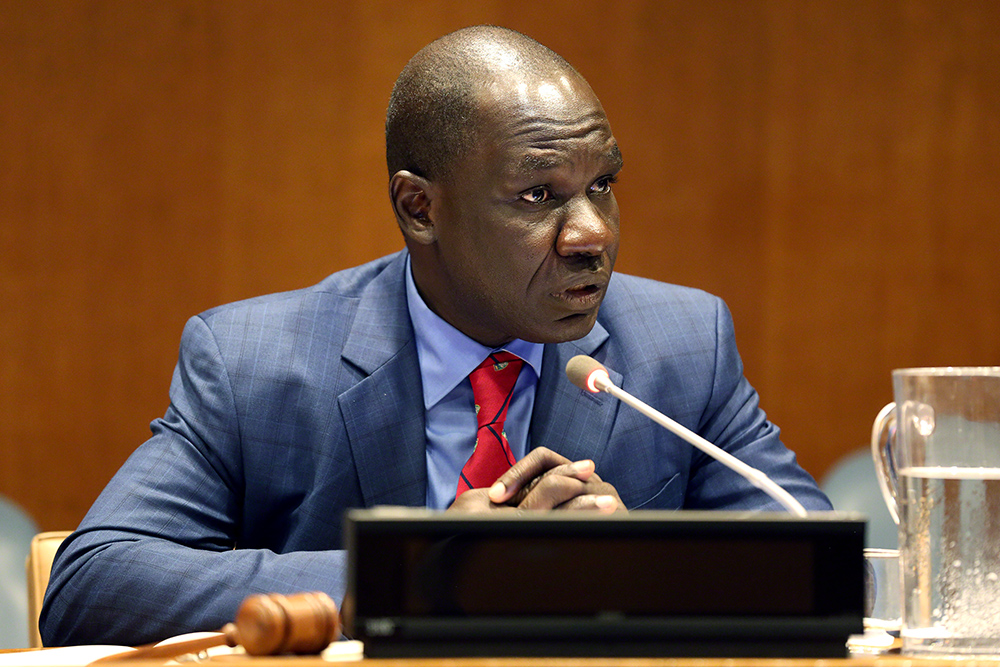
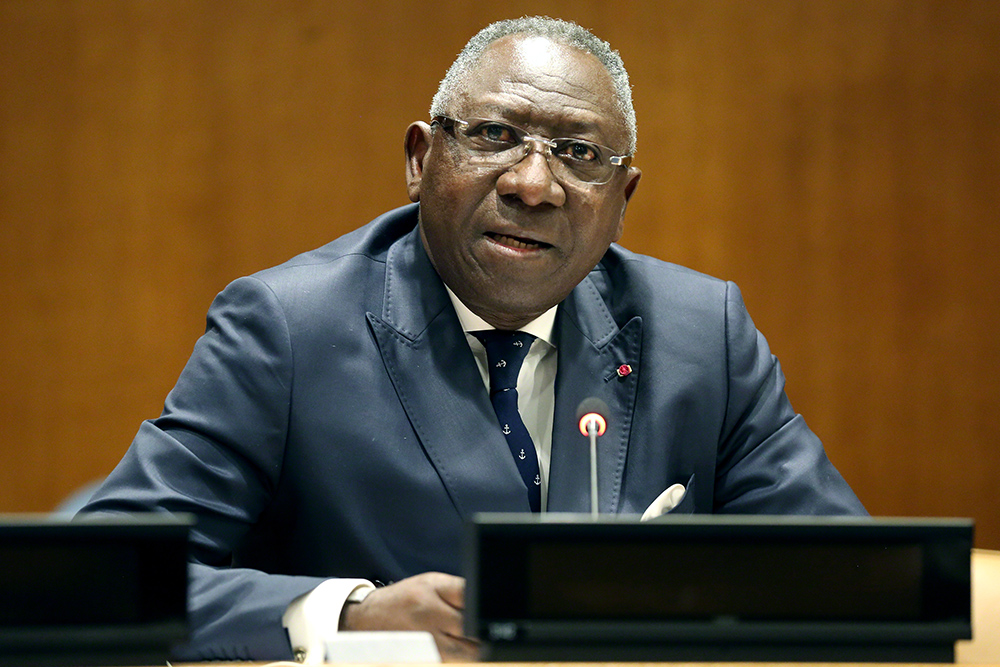
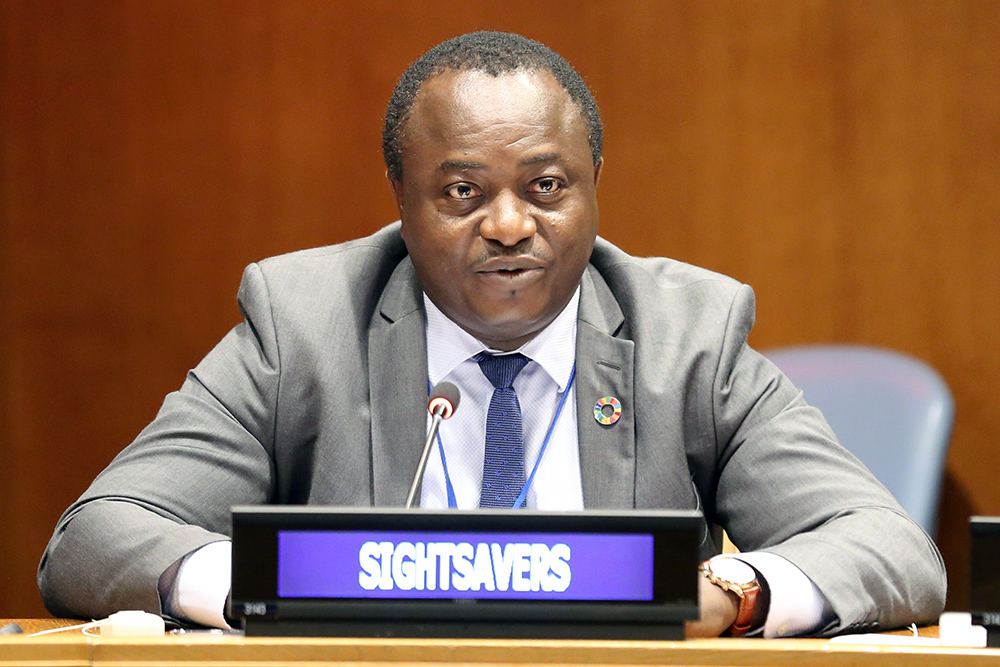
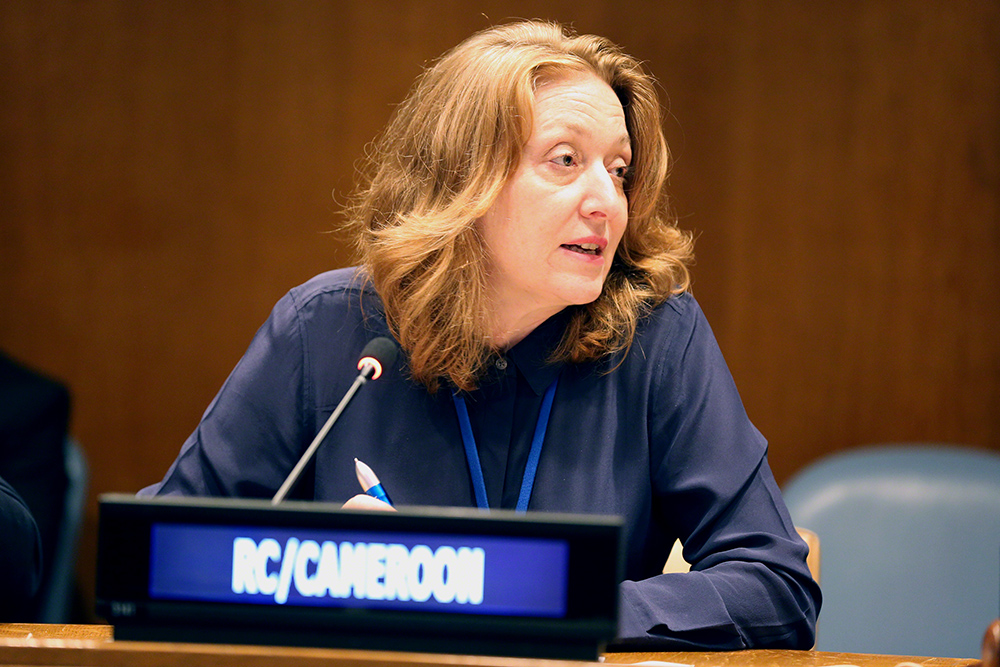
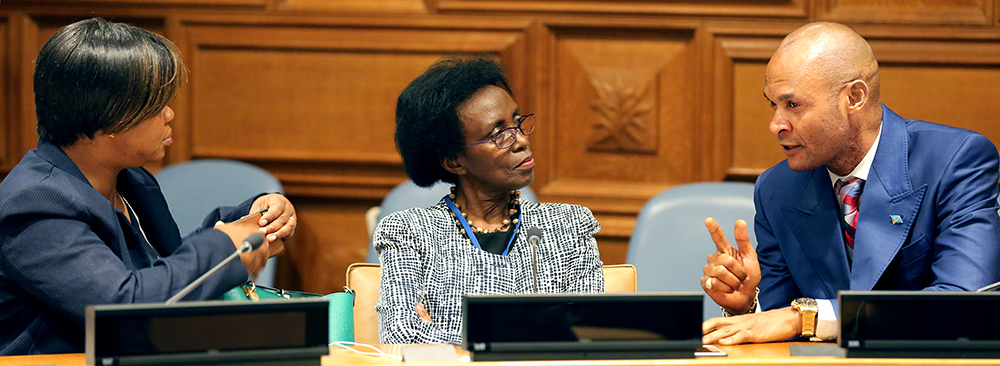
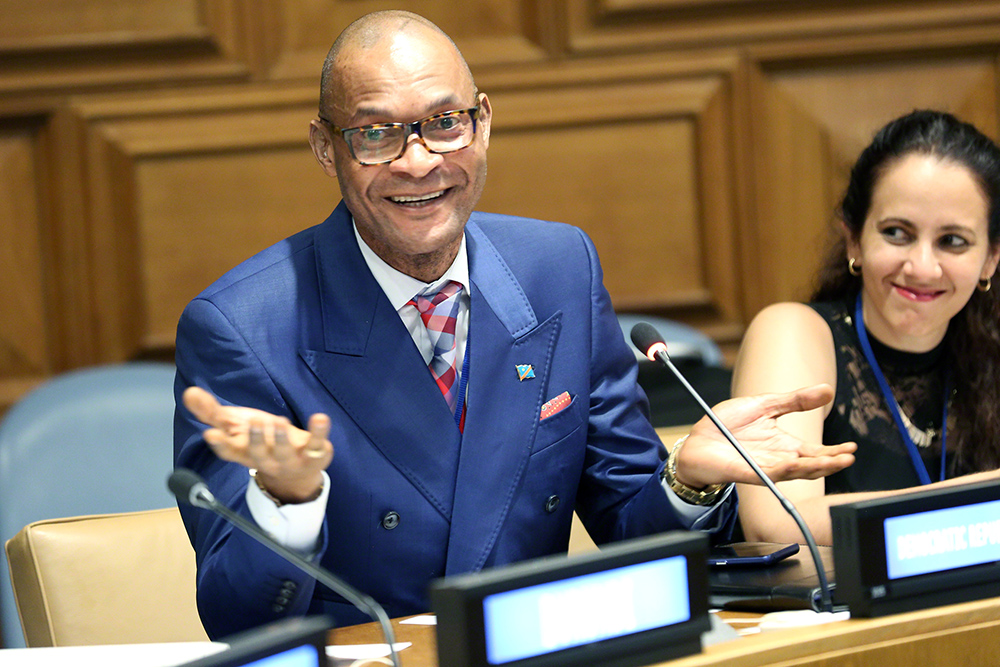
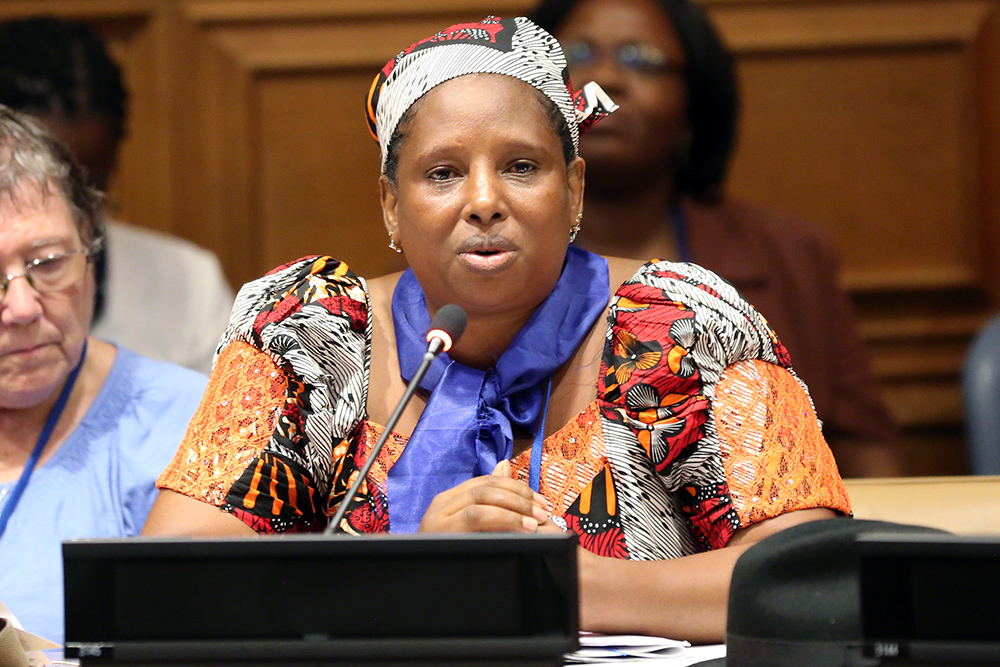
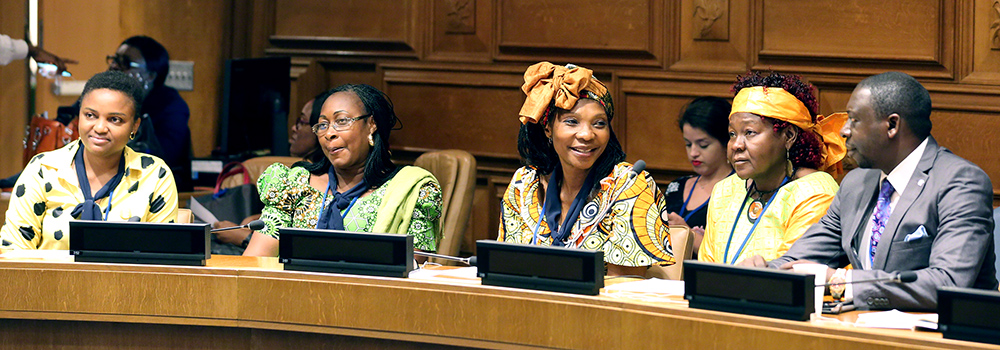
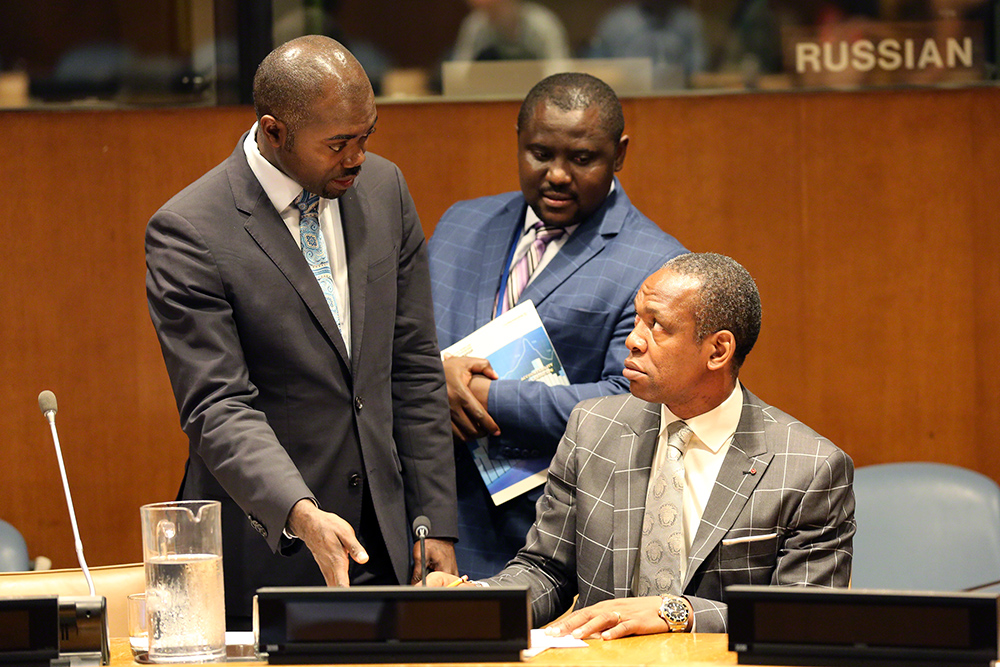
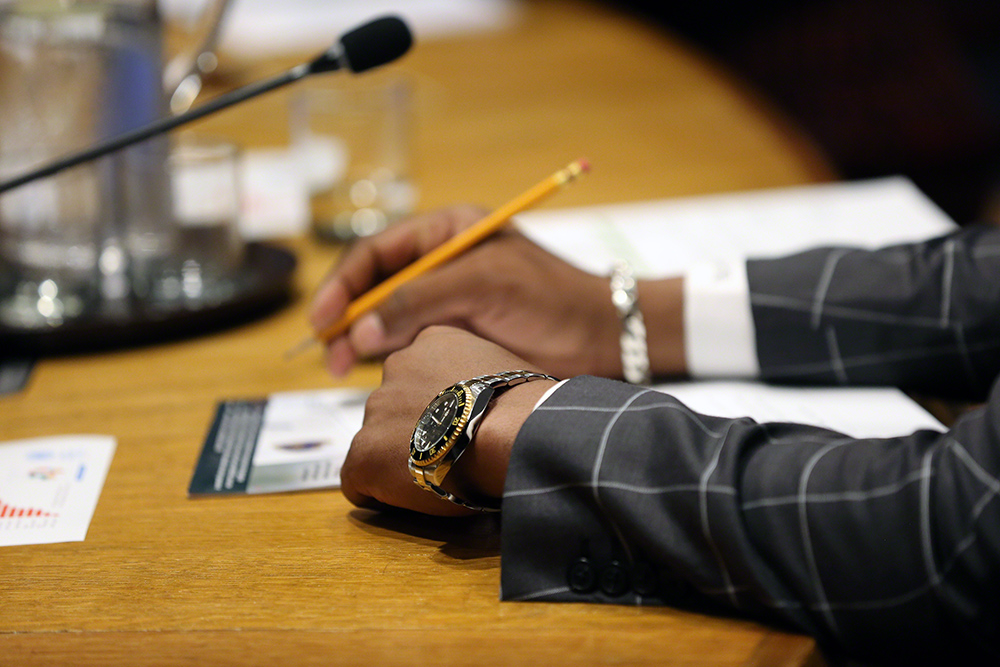
Trade and Sustainable Development: Progress and the Way Forward
Joint event presented by the World Trade Organization (WTO), the International Trade Centre (ITC), and the UN Conference on Trade and Development (UNCTAD)
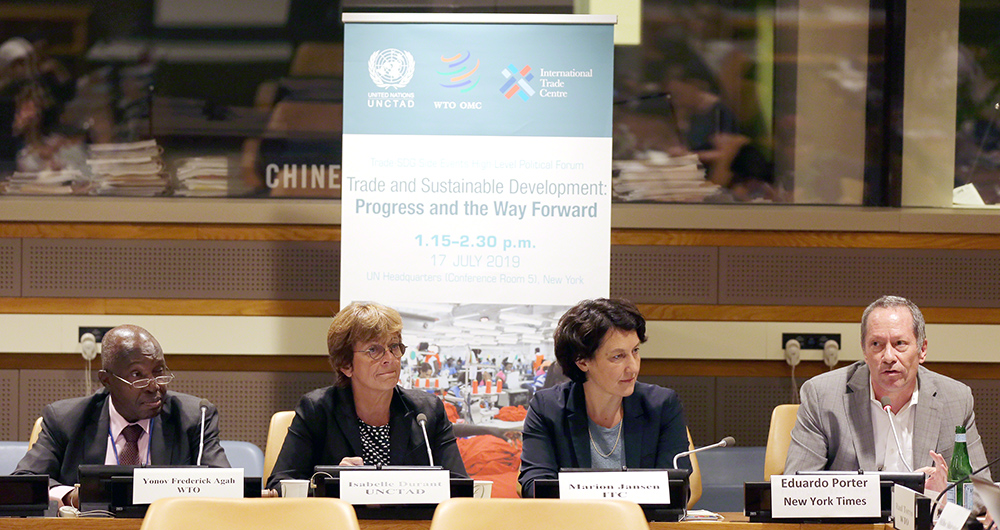
Key messages:
- Trade is a means of implementation for the UN 2030 Agenda for Sustainable Development;
- Trade can contribute to developing countries’ endeavours to achieve sustained, inclusive and sustainable economic growth, but more concerted actions are required; and
- The Geneva Trade Hub agencies (UNCTAD, ITC and WTO) are adopting a joint new website that will provide comprehensive and detailed information on the progress of the trade-related SDG targets.
The objective of this side event was to discuss policy areas that require the attention of the High-level Political Forum (HLPF) in the coming years and to formulate recommendations on ways to accelerate progress in achieving the Sustainable Development Goals (SDGs). At this event, the Geneva Trade Hub agencies also announced their joint new website initiative on trade-related SDG targets, which will be online by the end of the year.
Event summary:
Eduardo Porter, The New York Times, moderated the panel.
Yonov Frederick Agah, WTO, informed that the WTO published a report titled “Mainstreaming trade to attain the SDGs” to help Member States understand the role trade plays for the implementation of the SDGs. Highlighting that multilateral reform is key for more inclusive, equitable, and transparent engagement toward SDGs, he explained areas of WTO reform that can potentially contribute to achieving sustainable development by:
- addressing impasses in the appellate body;
- improving the regulatory work of the WTO for improved transparency and notification of trade policies; and
- advancing negotiations in the WTO, in particular on fisheries subsidies, as they impact social and environmental policies.
Isabelle Durant, UNCTAD, said it is misplaced to classify trade as unfair noting that during the last 30 years globalization produced inequalities, but it also reduced the number of people globally suffering from hunger. To increase the positive role of trade, she highlighted that it is necessary to: adopt better regulations and policies; strengthen multilateralism; reinforce dispute settlement mechanisms; and address climate change effects on trade.
Noting that small and medium-sized enterprises (SMEs) can make a positive impact on 60% of the individual SDG targets, Marion Jansen, ITC, shared information on how the ITC assists SMEs to reduce the negative perception of trade by facilitating their access to market, finance, and new technologies. She also highlighted that ITC helps strengthen the financial and managerial capacity of women entrepreneurs.
Modest Mero, Permanent Representative of Tanzania to the UN in Geneva, underscored the need to mainstream trade into national and sector strategies to achieve the SDGs, highlighting the growth of inequalities due to globalization.
Mauricio Trujillo, UN Major Group for Children and Youth, highlighted the need to revise current economic models and put economic reforms in place to achieve the SDGs, suggesting changing the incentives that evaluate economic growth, such as the gross domestic product (GDP). He recommended further attention to equity and human rights in trade regulations. Noting the absence of a representative of the private sector on the panel, he proposed that trade rules take into account the effects of digitalization, calling for mutual cooperation to ensure action against climate change and sustainable development.
In the ensuing debate, panelists highlighted that: a regional approach for the SMEs facilitates their insertion into the global trading system; there is urgency to promote a “systemic change”; there’s a need to support fair competition in trade and explore solutions for better regulations, in particular, for global financial markets and data; there is also urgency to fill the gaps and complete the existing agendas of the WTO to rebalance social inequalities.
Event conclusions:
The discussion focused on how trade can contribute to equitable and sustainable development. Participants recalled how some countries, such as China, have benefited from a free trade to achieve a middle-income status. However, current trade controversies provide a reminder that trade “brings losers as well,” creating anger and conflicts among nations. Panelists revived discussions about current global institutional architectures and highlighted how the Geneva Trade Hub agencies have collaborated and invested in measures, such as trade related indicators to achieve the SDGs. Participants agreed that it is key to strengthen the multilateral systems to continue supporting SDGs and to combat poverty, in particular.
